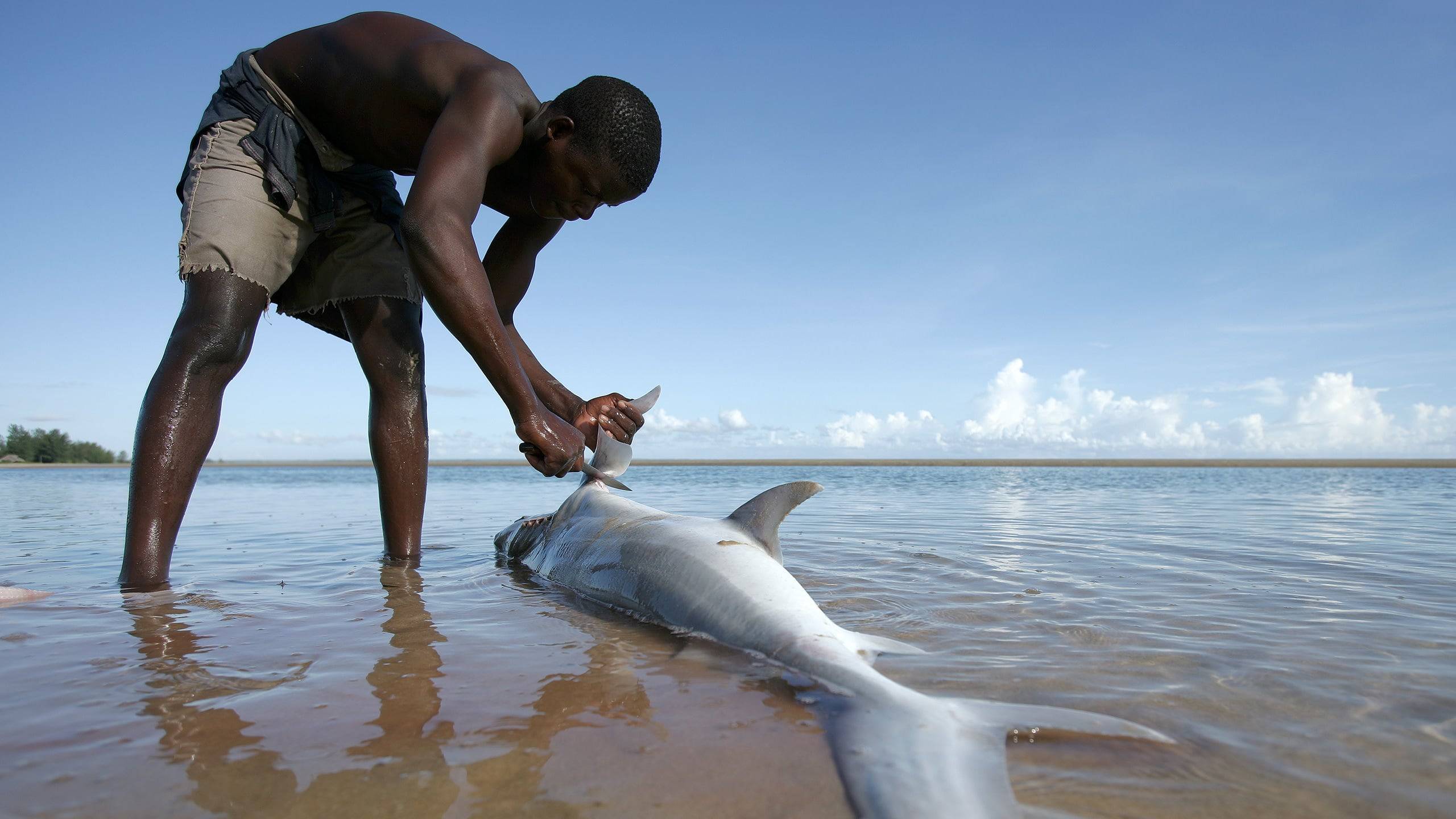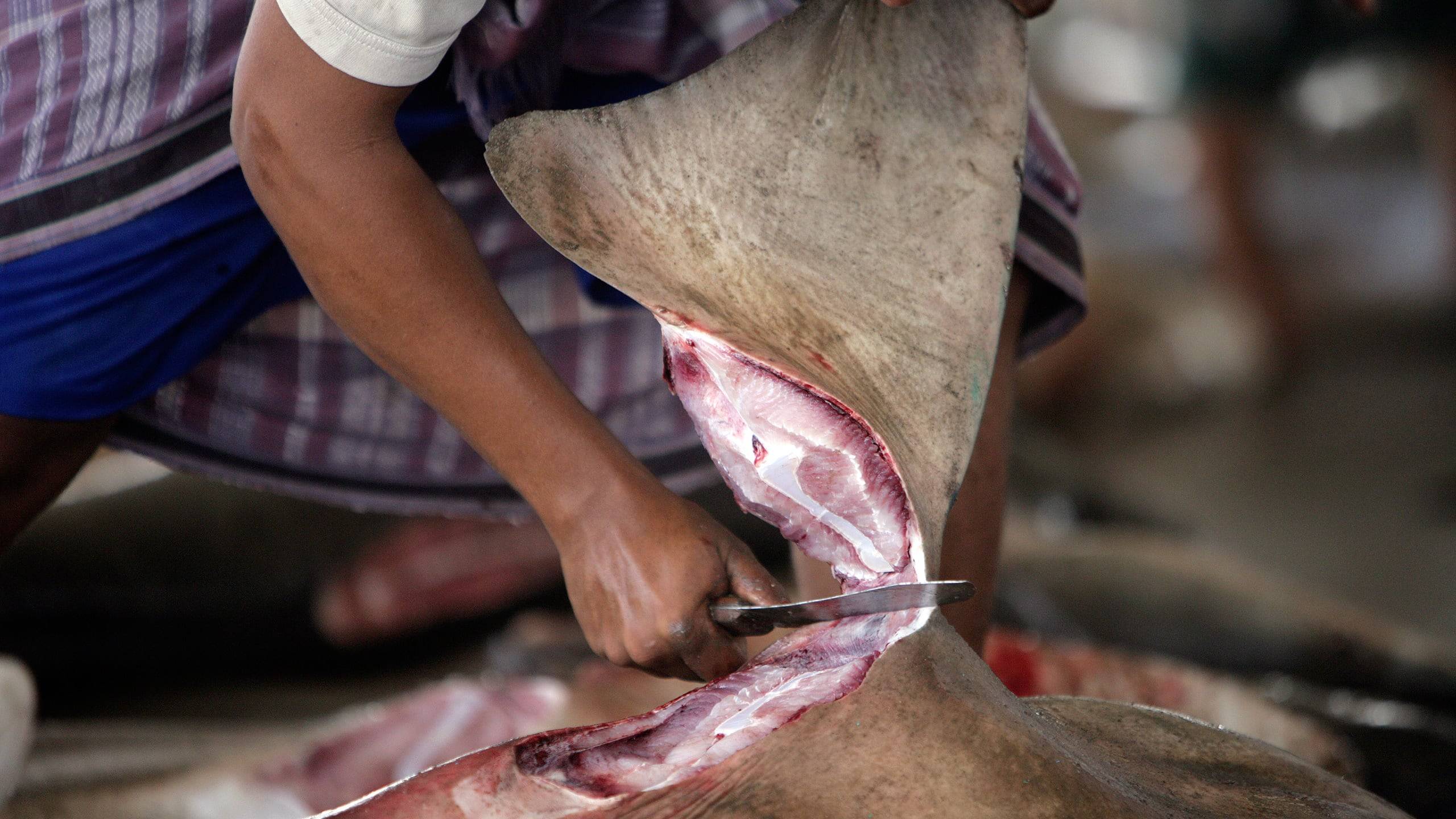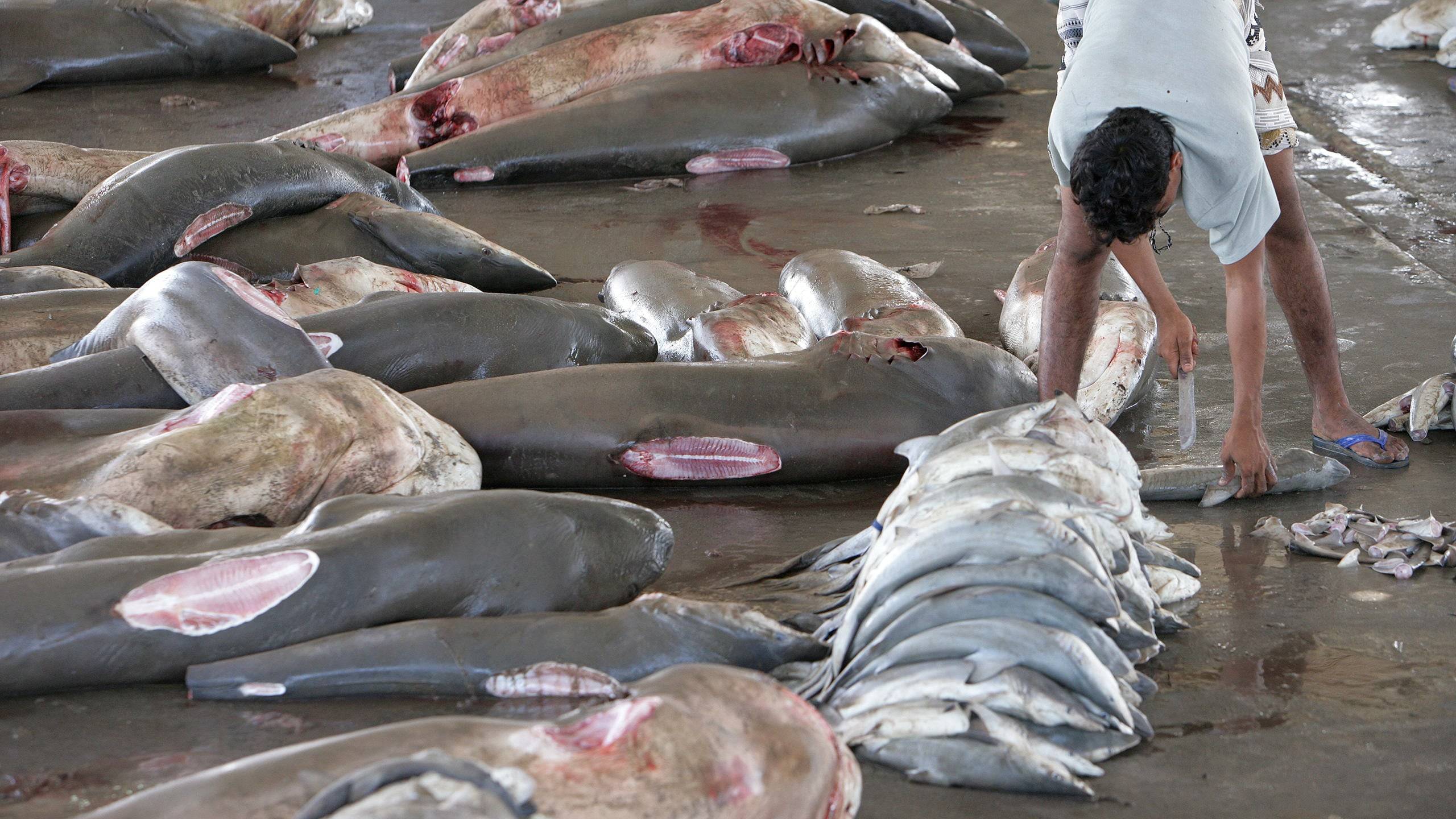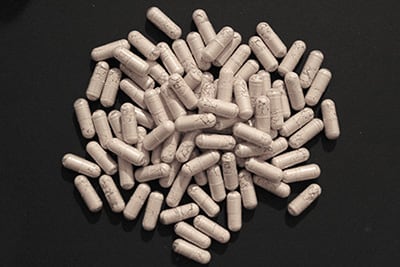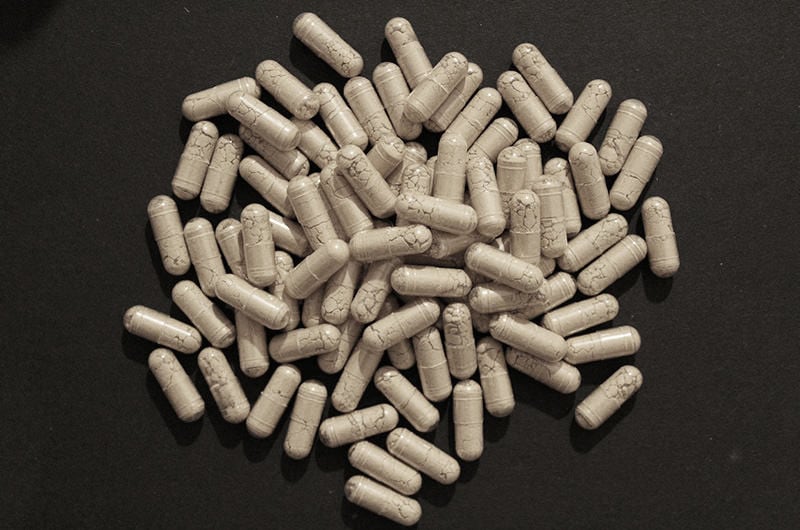Shark Cartilage
"Sharks don't get cancer" was the advertising slogan with which Dr. William I. Lane wanted to get his shark cartilage powder business going in the early 1990s. Although this cost his company a million dollar fine for false advertising, the rumor persists to this day.
The truth is that sharks do get cancer. Scientific literature has documented at least 42 benign and malignant tumor types in cartilaginous fish. Eating shark cartilage preparations is just as ineffective against cancer as pulverized pigs' ears. Only pigs are not threatened worldwide.
However, it is known that components from shark cartilage, if correctly administered in the test tube, can disrupt the blood supply of tumors. Eating it is not a "correct therapeutic administration."
How the run on shark cartilage began
"Sharks don't get cancer" or in the German edition "Why sharks are immune to cancer" was the title of a pseudo-scientific book by Dr. William I. Lane, which started the run on shark cartilage in the early 1990s. It was based on a 1983 study by researchers from the Massachusetts Institute of Technology (MIT) who found that cartilage from calves and sharks affected the blood supply and thus - indirectly - the growth of tumors. The book praised shark cartilage as a panacea against cancer, citing questionable studies.
A clever move by Lane, because the enterprising agrobiochemist William Lane was president of the American Fishmeal Trade Association and investigated investment opportunities in the Guinean fishing industry on behalf of the then Reagan administration. An effective anticancer drug promised a billion-dollar business, including for Lane, who himself was the owner of one of the largest companies for shark products.
Lane's company was fined $1 million for false advertising in June 2000.
The penalty was so high, among other things, because several cancer patients relied on the ineffective shark cartilage powder and underwent medical treatment much too late.




